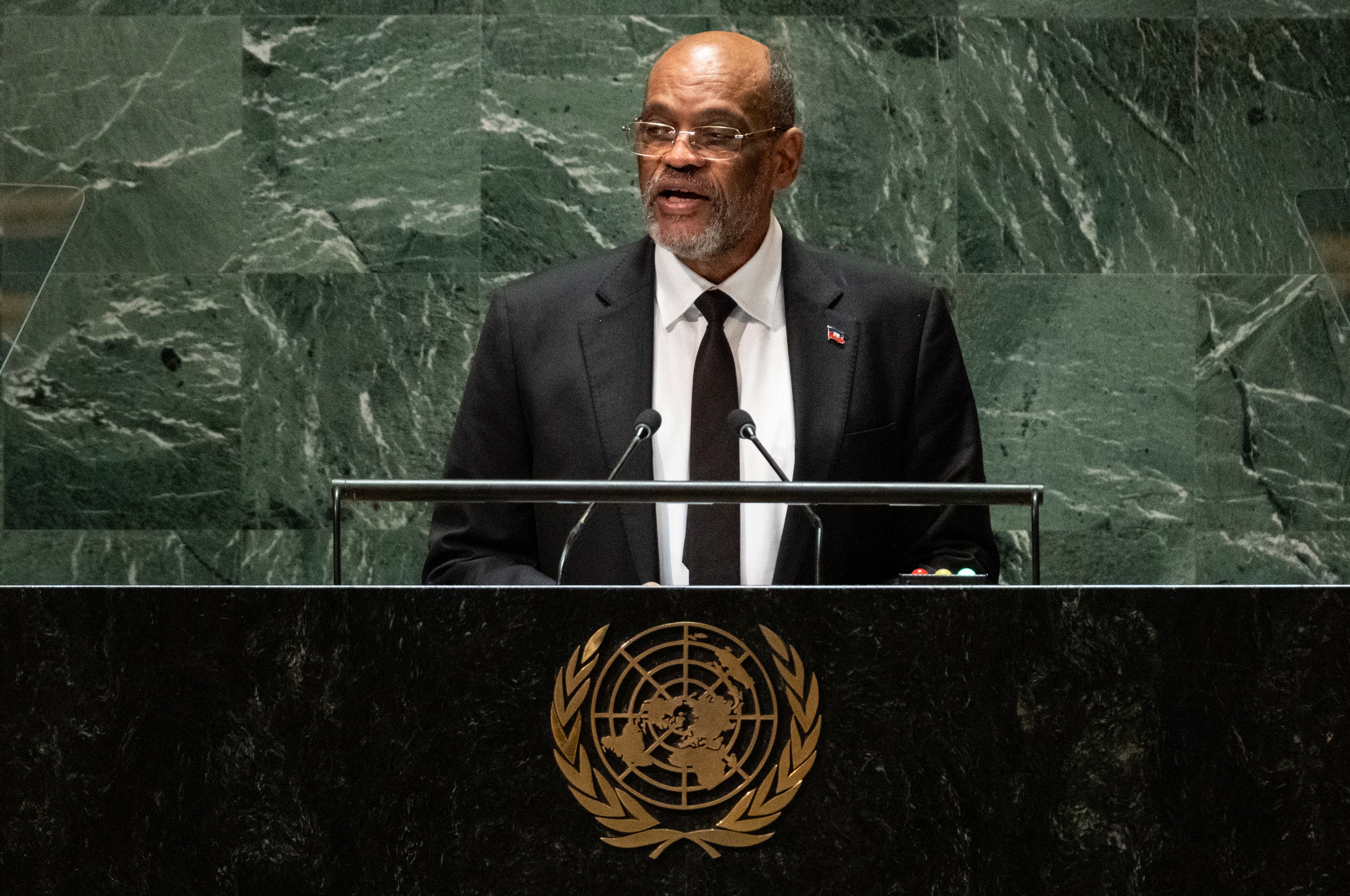Haitian prime minister in Kenya to try to salvage African country's deployment of police to Haiti
Haiti’s prime minister has arrived in Kenya to try to salvage a plan to have the African country deploy 1,000 police officers to the troubled Caribbean nation to help combat gang violence

Haiti's prime minister arrived Thursday in Kenya to try to salvage a plan to have the African country deploy 1,000 police officers to the troubled Caribbean nation to help combat gang violence.
Kenya agreed in October to lead a U.N.-authorized international police force to Haiti, but the Kenyan High Court in January ruled the plan unconstitutional in part because of a lack of “reciprocal agreements” between the two countries.
The office of Haitian Prime Minister Ariel Henry said he was traveling at the invitation of Kenyan President William Ruto to “finalize modalities” for agreements between the countries on the deployment, which would send 1,000 Kenyan police officers to Haiti.
It was not immediately clear how, or if, the agreements could circumvent the court’s ruling, which also said that Kenya's National Police Service cannot be deployed outside the country.
Ruto and Henry met Thursday at the State House in Nairobi.
Ruto said in a post on X, formerly Twitter, that Kenya associates itself with the people of Haiti because of a common heritage. “We are offering the experience and expertise of our police" for the proposed Multinational Security Support Mission in Haiti, Ruto said.
Ekuru Aukot, an opposition leader who has challenged the deployment in court, has said that even if the Kenyan government establishes an appropriate agreement with Haiti, its prime minister lacks the legitimacy to sign the document on behalf of the country.
Henry has repeatedly pledged to hold elections since being sworn in as prime minister and interim president after the July 2021 assassination of President Jovenel Moïse, but he and other officials say gang violence has not allowed them to move forward on those promises.
Caribbean leaders said late Wednesday that Henry has agreed to hold general elections by mid-2025.
Aukot says he also opposes the deployment because Kenya is facing security challenges that require police intervention. Among them are the Somali-based al-Qaida-linked extremist group al-Shabab who have been carrying out retaliatory attacks since 2011 on Kenya for sending its troops to Somalia to fight the militants. He also has cited high rates of crime, including cattle rustling in Kenya's northwest.
Human rights groups also have noted that the Kenyan police have been implicated for years in human rights abuses, including extra-judicial executions.
In Haiti, gangs have grown more powerful and political instability has increased since the assassination of President Moïse, who had faced protests calling for his resignation over corruption charges and claims that his five-year term had expired.
More than 8,400 people were reported killed, injured or kidnapped in Haiti in 2023 — more than double the number reported in 2022. The gangs continue to fight over territory, and are estimated to control up to 80% of Port-au-Prince.
Subscribe to Independent Premium to bookmark this article
Want to bookmark your favourite articles and stories to read or reference later? Start your Independent Premium subscription today.
